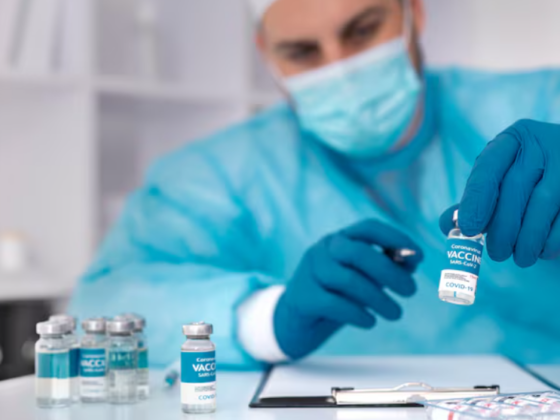Human papillomavirus (HPV) is one of the most common sexually transmitted infections (STIs) worldwide. Nearly every sexually active person is likely to contract the virus at some point in their lives. While the majority of HPV infections do not lead to serious health issues, some can cause significant problems, particularly when left undiagnosed or untreated.
HPV is known for its ability to remain silent in many individuals for long periods. It can sometimes go unnoticed for years, as it often does not show symptoms. However, in certain cases, the virus can cause warts or, more seriously, lead to cancers of the cervix, vulva, vagina, anus, and throat. Understanding the potential health implications of HPV and the treatments available is crucial for individuals diagnosed with the virus. Additionally, it’s important to know that taking time off for medical procedures, such as colposcopy or cryotherapy, may be necessary.
What Is HPV and How Does It Affect Your Health?
HPV is a group of over 200 related viruses, many of which are harmless and resolve on their own. However, there are high-risk strains of HPV that can lead to the development of various cancers, particularly cervical cancer. These high-risk strains are the primary concern, as they may cause changes in the cells of the cervix, a condition known as cervical dysplasia.
The infection typically spreads through skin-to-skin contact, including sexual contact. HPV is most commonly spread during vaginal, anal, and oral sex, but it can also be transmitted through other forms of skin contact, such as genital-to-genital contact. Most people who contract HPV never experience any symptoms and are unaware they have the virus, making regular screenings and checkups vital for early detection.
In some cases, HPV can cause genital warts. These warts can appear on the genital, anal, or mouth area and are often the first visible sign of the infection. Although warts are generally harmless, they can cause discomfort and emotional distress. Fortunately, warts can be treated with topical medications, cryotherapy, or surgical procedures.
How Is HPV Diagnosed?
Since HPV often does not show any symptoms, it is essential to get regular screenings. For women, a Pap smear test is a routine part of gynecological exams. This test detects abnormal changes in the cells of the cervix that could indicate the presence of HPV and cervical cancer. If any abnormalities are found, further testing may be required to confirm the presence of high-risk HPV strains.
For men, there is currently no standard test for HPV. However, men who have symptoms such as genital warts can be diagnosed through visual inspection by a healthcare provider.
If a doctor detects abnormal cervical cells during a routine Pap smear, they may recommend a colposcopy, a procedure that allows the doctor to closely examine the cervix, vagina, and vulva using a special microscope. In some cases, a biopsy may be performed during this procedure to gather tissue samples for further examination.
Treatment Options for HPV
While there is no cure for HPV itself, treatments are available to manage its symptoms and reduce the risk of complications. The type of treatment recommended depends on the severity of the infection and the specific health issues it causes.
1. Genital Warts Treatment
Genital warts, caused by certain strains of HPV, can be treated in several ways. Topical medications, such as imiquimod, podophyllin, or trichloroacetic acid, may be prescribed to remove the warts. In more severe cases, cryotherapy (freezing the warts), laser therapy, or minor surgical procedures may be necessary.
2. Colposcopy and Biopsy
If a Pap smear or other tests indicate abnormal cervical cells, a colposcopy may be recommended. This procedure involves using a special magnifying instrument to closely examine the cervix for abnormal tissue. If necessary, a biopsy can be performed during the colposcopy to determine the presence of high-risk HPV strains. In some cases, this procedure can be followed by cryotherapy or other treatments to remove abnormal cells and prevent the development of cancer.
3. Cryotherapy
Cryotherapy is a treatment that involves freezing abnormal cervical tissue. This procedure is often used to treat cervical dysplasia and can prevent the progression of HPV-related cancers. Cryotherapy is typically performed in a doctor’s office and requires no incisions, though it may require some recovery time afterward. Patients may need to take time off work following the procedure, which is where obtaining a doctor’s note for work can be helpful.
When to Take Time Off for Treatment
If you are undergoing treatment for HPV-related issues such as a colposcopy or cryotherapy, it may be necessary to take some time off to allow for recovery. While the recovery period for each procedure may vary, it’s important to follow your doctor’s instructions for rest and care.
For those who may need to take time off work or school after a medical procedure, obtaining an official doctor’s note is an important step in ensuring that your absence is excused. A real doctor’s note for work will verify that you have undergone a medical procedure and need time to recover.
In some cases, individuals may require a medical leave of absence for an extended period of time. This is where the Family and Medical Leave Act (FMLA) certification can be particularly helpful. FMLA allows employees to take unpaid, job-protected leave for serious medical conditions, such as those caused by HPV-related treatments. My Dr’s Note offers online FMLA certification services, providing individuals with the documentation they need to take time off from work without the risk of losing their job.
Conclusion
HPV is a common virus that affects a significant portion of the population, and while most cases do not cause serious health problems, some strains can lead to cervical cancer and other complications. Understanding the importance of early detection and treatment is essential to managing HPV and preventing further health issues. If you need to take time off work or school for treatment, services like My Dr’s Note offer a convenient way to obtain a doctor’s note online, ensuring that your absence is excused and you can focus on your recovery.
How My Dr’s Note Can Help
If you need to take time off work or school for a medical procedure, My Dr’s Note offers a fast, reliable, and convenient solution. By visiting their online platform, you can easily obtain a legitimate doctor’s note for work, school, or any other purpose. Their online doctor’s note service allows you to get the documentation you need without the hassle of scheduling an in-person appointment.
Whether you need a doctor’s note for school or work, My Dr’s Note provides a real doctor’s note online for your convenience. The platform offers quick and affordable services, including the ability to get a doctor’s excuse online in just a few simple steps. Additionally, for those requiring medical leave due to a serious condition, My Dr’s Note can help you with FMLA certification.
About the Author
Jonathan Carter is a healthcare professional with over 15 years of experience in patient care and medical research. He specializes in gynecology and reproductive health, providing patients with the knowledge and resources they need to navigate their health journey. Carter is passionate about educating the public on the importance of regular screenings and proactive health management.











